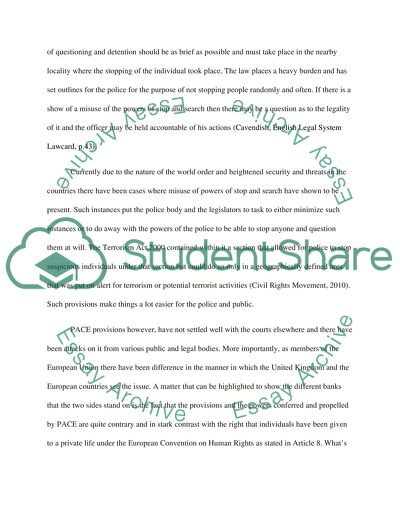Cite this document
(Modern Development of the Law and Practice Concerning Stop and Search Case Study, n.d.)
Modern Development of the Law and Practice Concerning Stop and Search Case Study. https://studentshare.org/law/1744635-explain-and-comment-on-the-modern-development-of-the-law-and-practice-concerning-stop-and-search-particularly-in-relation-to-its-impact-on-human-rights-and-civil-liberties
Modern Development of the Law and Practice Concerning Stop and Search Case Study. https://studentshare.org/law/1744635-explain-and-comment-on-the-modern-development-of-the-law-and-practice-concerning-stop-and-search-particularly-in-relation-to-its-impact-on-human-rights-and-civil-liberties
(Modern Development of the Law and Practice Concerning Stop and Search Case Study)
Modern Development of the Law and Practice Concerning Stop and Search Case Study. https://studentshare.org/law/1744635-explain-and-comment-on-the-modern-development-of-the-law-and-practice-concerning-stop-and-search-particularly-in-relation-to-its-impact-on-human-rights-and-civil-liberties.
Modern Development of the Law and Practice Concerning Stop and Search Case Study. https://studentshare.org/law/1744635-explain-and-comment-on-the-modern-development-of-the-law-and-practice-concerning-stop-and-search-particularly-in-relation-to-its-impact-on-human-rights-and-civil-liberties.
“Modern Development of the Law and Practice Concerning Stop and Search Case Study”. https://studentshare.org/law/1744635-explain-and-comment-on-the-modern-development-of-the-law-and-practice-concerning-stop-and-search-particularly-in-relation-to-its-impact-on-human-rights-and-civil-liberties.


